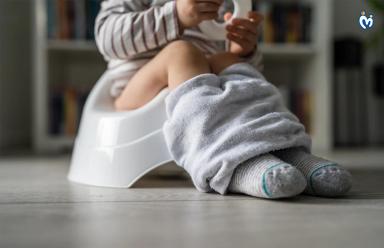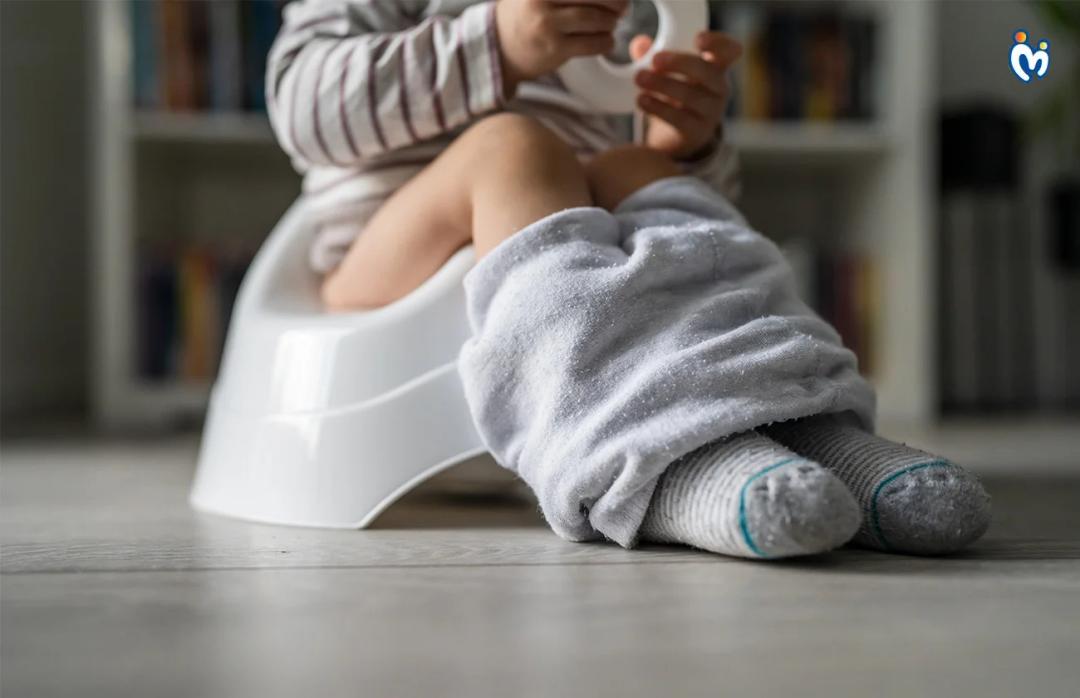The coronavirus has taken the world by storm and our main question is how to keep ourselves and our loved ones safe. For this reason, people ask questions to get answers that may provide them with the knowledge and confidence to do so. Among these frequently asked questions lies the doubt as to who is more susceptible to contract the virus and who is potentially free from the threats of the virus. Unfortunately, people of all ages can catch the virus. This includes babies who have no understanding and very limited self-defence mechanisms against the virus as they are just beginning to grow in the external world. So how can we keep them safe during these uncertain times? Here is what you need to know about COVID-19 and babies.
Can they get the coronavirus and what are the symptoms?
As stated above, babies are faced with the threat of the virus as well. A Chinese statistical study found that among the 2000 children that were reported to have the virus, 10.6% of the cases were of infants under the age of 1.
These cases also recorded the babies to have been suffering from more severe symptoms of the virus. Some of the symptoms of COVID-19 in babies are:
- Cough
- Cold
- Sore throat
- Fever
- Muscle pain
- Digestive issues
- Loss of taste and smell and even change in appetite for those babies that are too young to comprehend these changes
- Shortness of breath
Some of the more severe symptoms are:
- Low oxygen levels and the signs such as blue lip, rapid heart rate and white fingernail beds.
- Organ failure
- Inability to wake up or keep liquids down
Care and precautions
Despite the low statistics of children and babies suffering from severe symptoms, it is better to be safe than sorry. It is the duty of the parents and caretakers of the babies to take it upon themselves to minimise possible exposure of the baby to the virus.
Some precautions to be taken are:
- Avoid going out with the baby and if it is necessary to leave the house, make sure to use an effective mask for the baby as well.
- Limit unknown visitors in the house because you may not know if they have recently been exposed to the virus or not
- Regularly wash your hands and sanitise before handling the baby. Whether it is to feed them or to change their clothes, it is important to practice these hygiene steps.
- Ensure that anyone handling the baby like nannies and helpers that come from outside have not been recently exposed to the virus, wear masks at all times, regularly wash their hands and maintain good hygiene.
If your baby has contracted the virus, there are steps that must be followed to ensure a seamless recovery:
- Call a doctor to enquire whether they need to be brought to a hospital or if they can recover at home
- Watch for signs. Make sure that you are aware of all the changes that your baby is going through and look out for alarming symptoms. If they look extremely sick, are having struggles in breathing, staying awake and so on, call your doctor immediately.
- As unfavourable as it may be to keep your baby in isolation, it is necessary to keep them away from the rest of the members in the house. There must be a single caretaker for the baby to avoid the spread of the virus to anyone else.
- Remember to constantly take temperature and oxygen level checks to identify their progress.
- Implement a healthy diet to ensure that their immune system is not compromised
- If the baby is over the age of 2 years, they must wear a mask. They should not have any difficulty in breathing
- Avoid stress. This is not helpful for a speedy recovery of the baby. Stay calm and optimistic.
If the parents test positive for COVID-19, it is imperative to prepare the baby to be apart from the parent for the isolation period. Organise for a nanny or have a family member stay at the house and take care of your baby. Devise a medium of communication to aid during the separation period. Staying positive and clear-headed is a simple way to win a small part of the battle against COVID-19.
FAQ's
Q. Can babies catch COVID-19?
Ans.Yes, babies can contract COVID-19 just like adults. Although the number of severe cases in infants is lower, their underdeveloped immune systems make them vulnerable. Studies show infants under one year are at a higher risk of complications, so parents should take extra precautions to protect them from exposure.
Q. What are common COVID-19 symptoms in babies?
Ans.Babies may show symptoms such as cough, cold, fever, sore throat, muscle pain, and digestive issues. Some may lose appetite or show changes in feeding behavior. Severe symptoms can include breathing difficulties, low oxygen levels, blue lips, and rapid heartbeat. Parents should monitor closely and seek medical help immediately.
Q. How can parents reduce their baby’s risk of infection?
Ans.Parents should limit outside exposure, avoid unnecessary outings, and restrict visitors. Regular handwashing, sanitizing, and wearing masks when handling babies are crucial. Caretakers should also follow strict hygiene practices. Creating a safe environment with minimal contact from outsiders reduces the risk of infection and keeps the baby safer.
Q. Should babies wear masks during the pandemic?
Ans.Masks are not recommended for babies under 2 years old, as they can interfere with breathing. For children above 2 years, masks can be worn if tolerated safely. Instead, parents and caregivers should wear masks, maintain hygiene, and limit the baby’s exposure to crowded or unsafe environments.
Q. What should parents do if their baby shows COVID-19 symptoms?
Ans.If a baby shows symptoms, parents should contact a pediatrician immediately. The doctor will advise whether hospitalization is necessary or if home care is sufficient. Monitoring symptoms, checking temperature and oxygen levels, and following medical guidance are essential. Parents must act quickly if severe symptoms such as breathing issues appear.
Q. How should babies with COVID-19 be cared for at home?
Ans.At home, infected babies should be cared for by one designated caregiver to reduce spread. Parents must ensure regular temperature and oxygen checks, proper hydration, and a healthy diet. Babies should be isolated from other family members, and hygiene practices must be strictly followed throughout the recovery process.
Q. Can parents with COVID-19 still care for their babies?
Ans.If parents test positive, it is best to arrange alternative caregiving, such as a trusted family member or nanny. Direct contact increases risk of transmission. If unavoidable, parents should wear masks, maintain hygiene, and limit close exposure while ensuring the baby continues receiving proper care and comfort.
Q. What severe symptoms in babies require emergency care?
Ans.Emergency care is needed if a baby has low oxygen levels, blue lips, rapid heartbeat, persistent high fever, inability to wake up, or refusal to take liquids. Organ failure signs or breathing struggles are also red flags. In such cases, parents must rush the baby to a hospital immediately.
Q. How can diet and lifestyle help a baby recover from COVID-19?
Ans.A nutritious diet supports a baby’s immune system and recovery. Breastfeeding or formula feeding should continue as advised. Once babies are older, balanced meals with vitamins and minerals help strengthen immunity. Keeping the baby stress-free, comfortable, and well-hydrated plays a key role in faster recovery and overall wellness.
Q. How can parents cope with stress while caring for a sick baby?
Ans.Caring for a sick baby can be overwhelming, but staying calm and optimistic helps both parent and child. Parents should seek support from family, maintain clear communication with doctors, and avoid panic. Managing stress, resting when possible, and focusing on the baby’s recovery ensures a more effective caregiving environment.
















